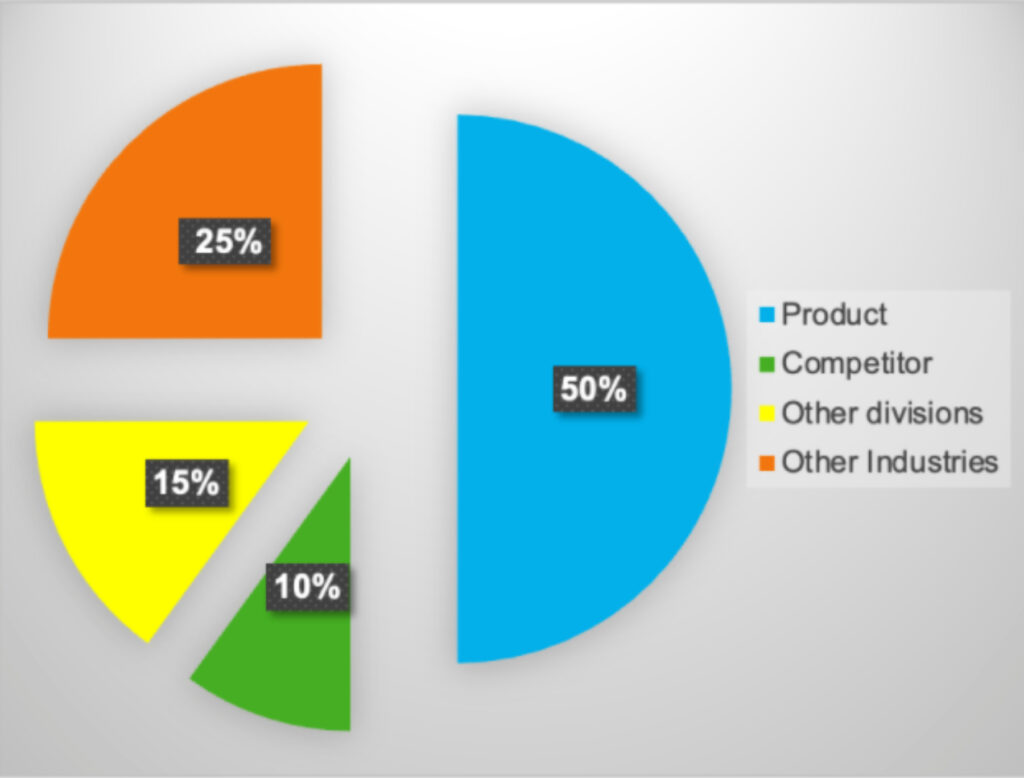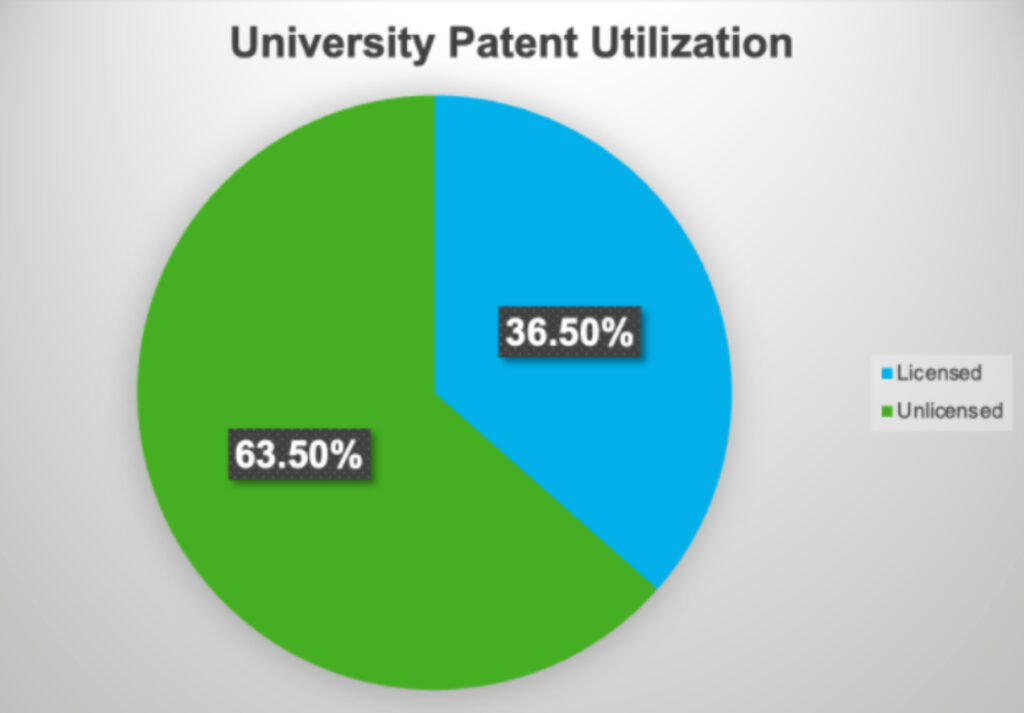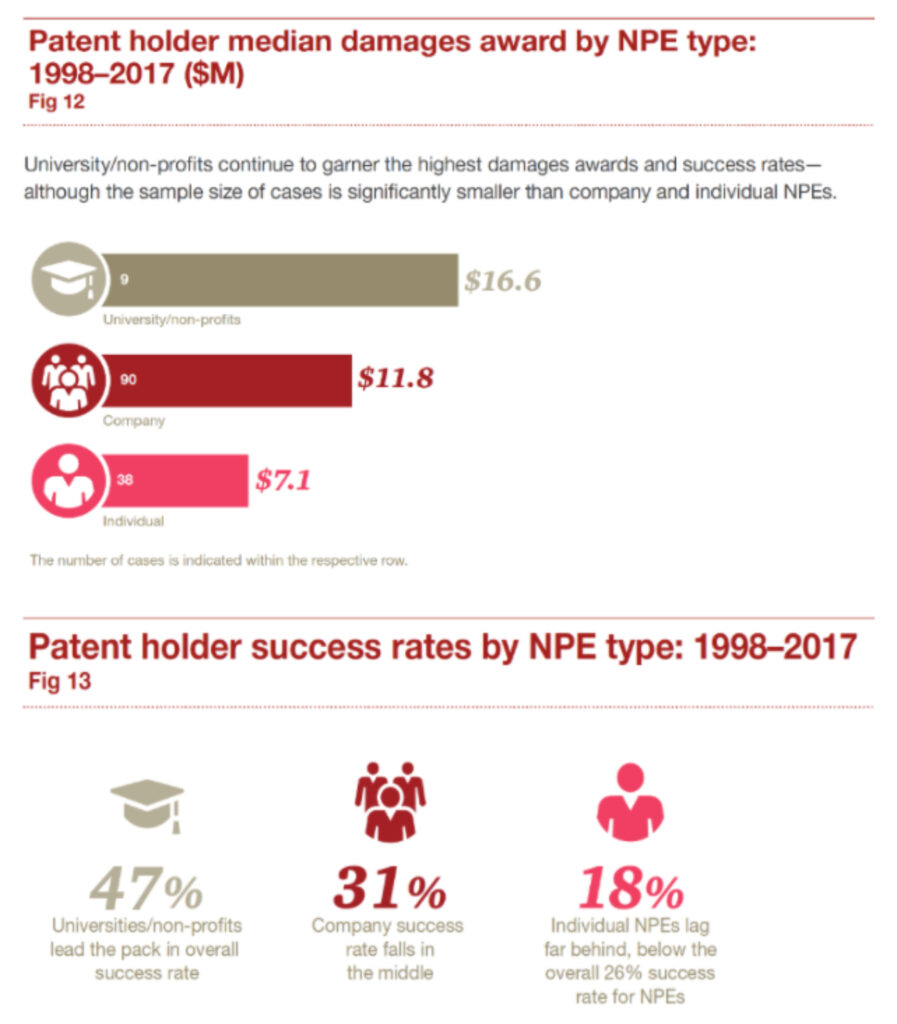Only engage in licensing, if and only if:
63.5%* of the patents from universities are never licensed and eventually abandoned
* AUTM Survey 2008-2018 using (patent expense reimbursed/ total patent expenses )
On an average of 40% value of technology is never monetized which are applicable to other divisions and other industries.

Derived from AUTM Survey Data (2008-2018). Legal expenses and legal expense reimbursement was taken as a proxy for licensing of patents.

This study by PwC shows Universities enjoy better success in asserting a patent than an individual or a company.

Carnegie Mellon ($750M against Marvell Technologies)
Caltech ($1.1 B against Apple and Broadcom) Major win against Apple and Broadcom in a $1.1 billion judgment
Rensselaer Polytechnic Institute ($24.9M)
A Monetization Success Story – Carnegie Mellon
University as Plaintiff | Defendant | Award | Date Award Was Granted |
University of Florida Board of Trustees | Hartmann’s Plant Company | $1 million | 21-Jul-17 |
University of Chicago | 10X Genomics | $34.4 million | 28-Aug-19 |
Carnegie Mellon University | Marvell Technology Group | $750 million | 17-Feb-16 |
Wisconsin Alumni Research Foundation (University of Wisconsin-Madison) | Intel | $110 million | 5-Oct-09 |
RPI | Apple | $24.9 million | 19-Apr-16 |
Caltech | Apple; Broadcom | $1.1 billion | 29-Jan-20 |
Cornell University | HP | $184 million (verdict); unknown | May 30, 2008; June 9, 2010 |
University of Missouri | Par Phamarceutical Inc. | $100 million | 22-Sep-14 |
University of Pittsburgh | Varian Medical Systems Inc. | $35 million | 10-Apr-14 |
University of Texas | Nippon Telegraph and Telephone Corp. | $30 million | 6-Oct-08 |
Regents of University of California | ev3; Boston Scientific Corp., et al. | $11.7 million | 31-Oct-07 |
Most patents (>90%) will never generate any revenue or even recoup the cost of filing the patent. Most patents created by corporations are for defensive reasons. For universities and research foundations which are not in the business of making a product, there is no defensive strategy. Universities have to license, sell or assert the patents to derive value from those assets. Patent monetization is the realization of value that one receives from an entity that is already using the patent without paying a fair royalty. Afterall, a patent is a negative right.